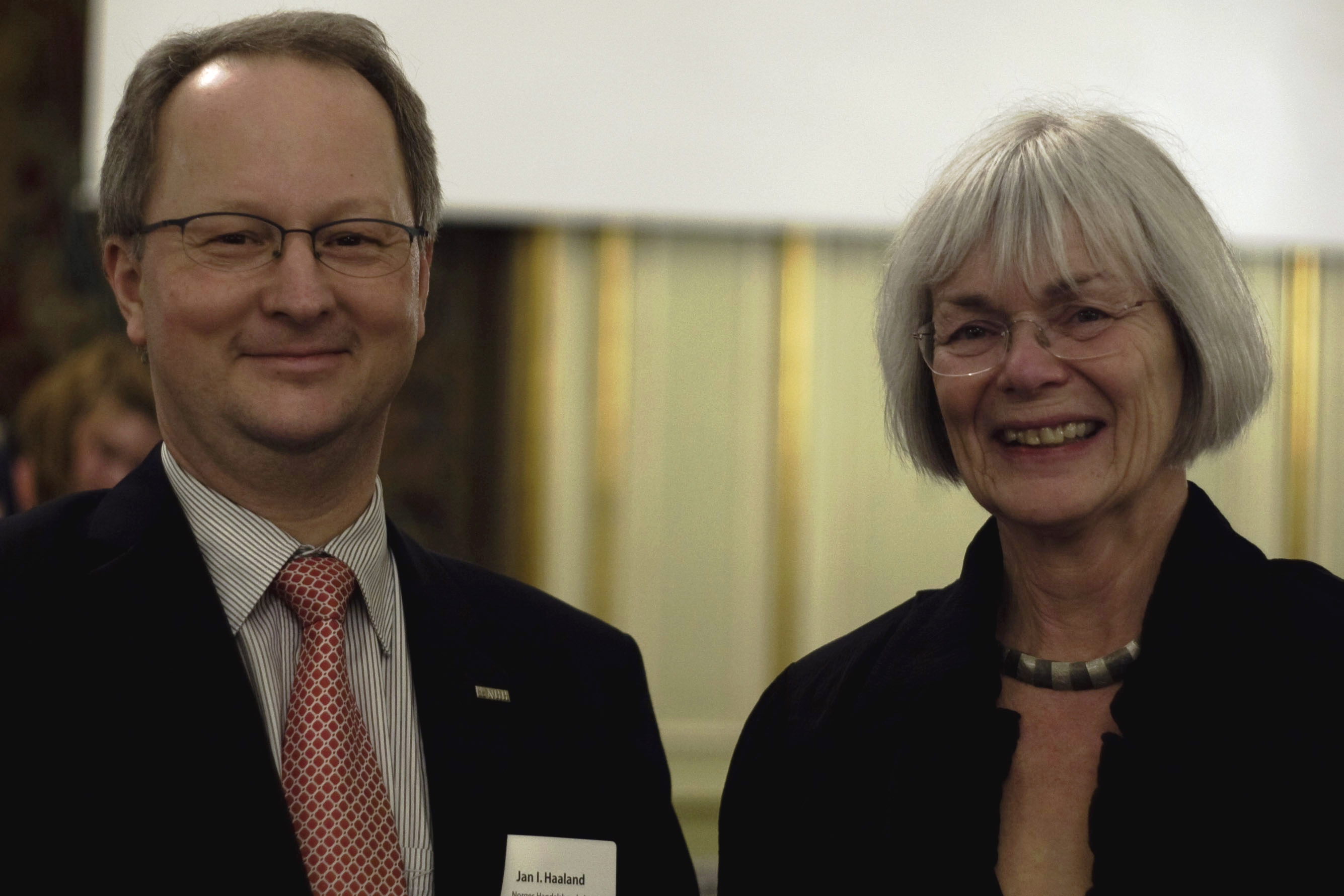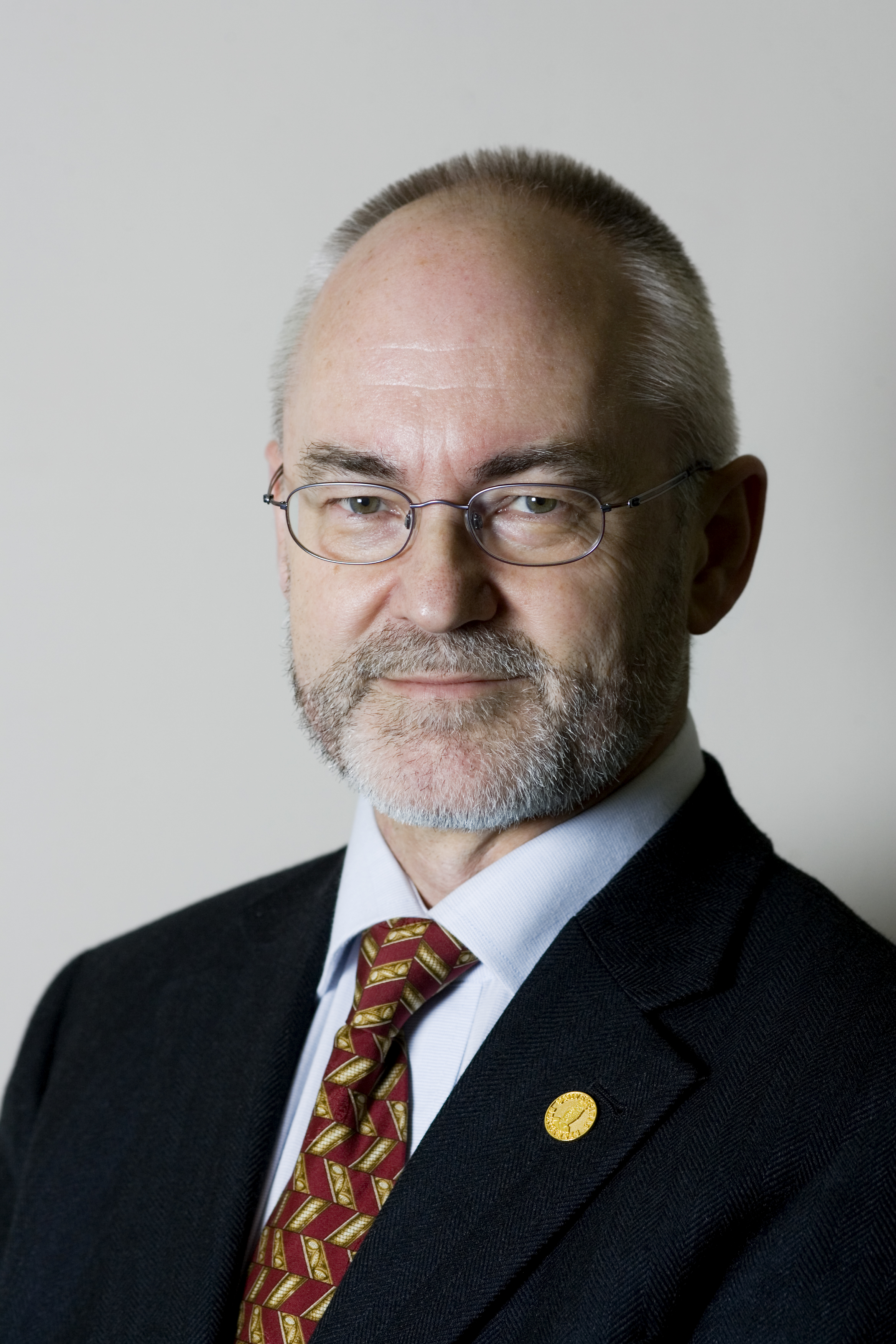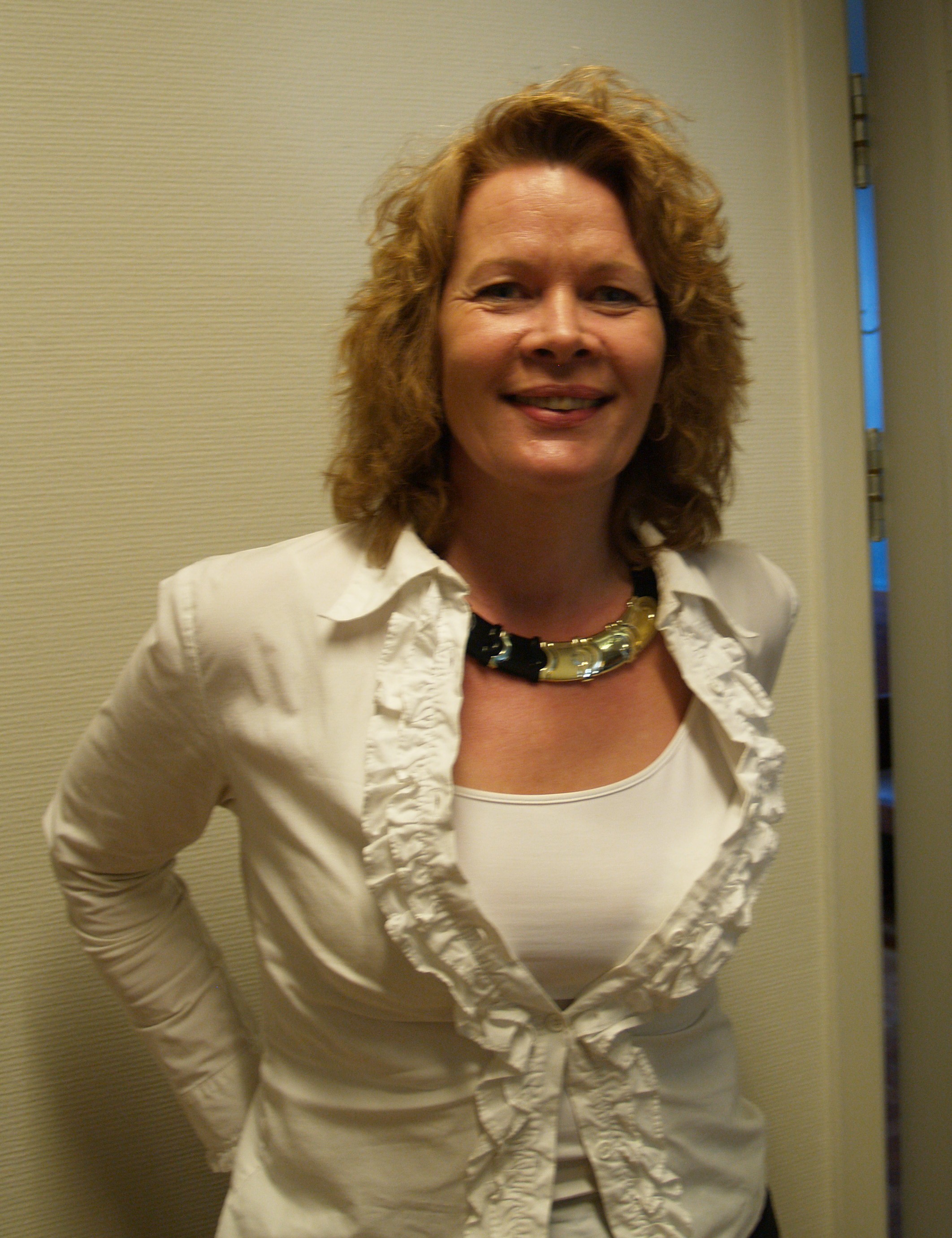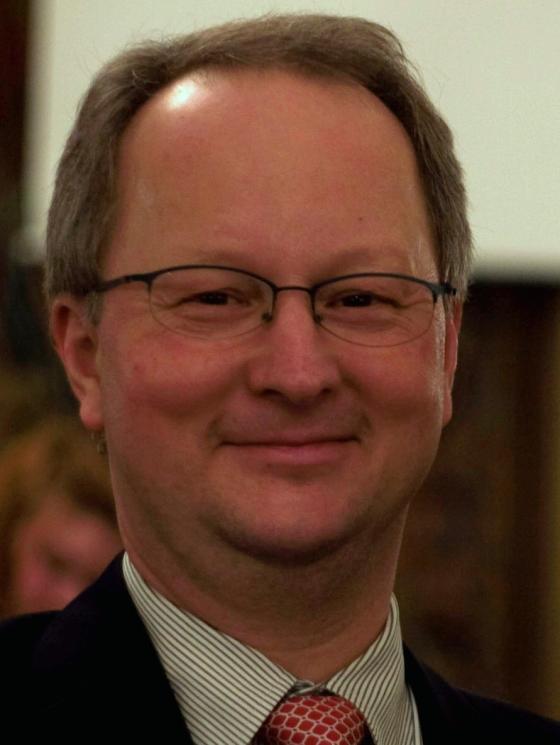Bergen leads the field in gender equality efforts
The capital of western Norway came out on top when the Gender Equality Award for 2008 was presented jointly to the University of Bergen and the Norwegian School of Economics and Business Administration (MHH).
“It’s a bit unfortunate that it’s two men who are up here accepting this award,” said Jan I. Haaland, Rector of the Norwegian School of Economics and Business Administration (NHH), when he accepted the Gender Equality Award for 2008. NHH shared the award with the University of Bergen, represented by Rector Sigmund Grønmo.

The award, which is conferred by the Ministry of Education and Research, was presented by Minister of Research and Higher Education Tora Aasland at the annual conference of the university and university college sector. The award of NOK 2 million does not necessarily go to the institutions with the best gender balance, but to those with the best strategies for achieving gender equality. The goal of the award is to increase the percentage of women in academic positions and to encourage a more even gender balance in academia.
“The institutions have distinguished themselves with their creativity, results orientation and originality in designing measures. And the results show this,” said Tora Aasland when she presented the award at the Grand Hotel in Oslo.
She highlighted in particular the University of Bergen’s strong focus on these issues and its good, detailed knowledge of the gender equality situation at the institution as well as the creativity displayed by the university and the results achieved. NHH was praised for its swift development of ambitious yet realistic goals.
“This is a great inspiration for everyone who has worked with gender equality and gender balance at UiB, and who will continue this work,” said Rector Sigmund Grønmo to the university’s online newspaper. He said that he was surprised about the award, but that he believes the university has earned it.
Firmly anchored
Rector of NHH Jan I. Haaland was also both surprised and delighted to take home the victory.

“This was unexpected, which makes it even more inspiring. We have major challenges in this area, but we have drawn up plans that have their basis in the academic environments. It is important to ensure that people feel a sense of ownership when it comes to plans and objectives,” he says.
“How important is the prize money? What can you accomplish with it?”
“We need to think through how we can get the most out of it. Both new appointments and qualification measures cost money, so the prize money will be put to good use,” says Haaland.
The gender equality plan at NHH is about one year old, and Haaland believes the plan is well integrated into the institution.
“We have really taken on board the issue of gender equality, but it is still difficult to recruit women,” he says.
The Rector emphasises that it is also difficult to recruit men to certain areas because they are looking for expertise that few have. But he explains that the individual departments have set clear recruitment goals and that the leadership provides moral as well as financial incentives for recruiting women.
Inspiring others
Aasland thanked the Committee for Mainstreaming – Women in Research for its efforts in connection with the award. The committee evaluates the action plans that are submitted and the corresponding gender equality measures, and then presents its recommendation to the Ministry of Education and Research. The committee also considers whether the award should go to just one or several institutions.
“The committee has done an outstanding job and has played a crucial support role,” said Aasland.
She now hopes that the awards will inspire more institutions in the efforts to promote gender equality.
“I hope the award acts as a stimulus for this work, which needs to be approached from several different angles. The imbalance in gender distribution will not correct itself. It is crucial that the institutions design effective measures and that I do my job at a more general level and in relation to the statutory framework,” she said to the Resource Bank after the award ceremony.
Will it make any difference?
But what can NOK 2 million do? Will it make any difference? Absolutely, according to one of last year’s winners, NTNU, which was awarded NOK 1.5 million. The remainder of the prize money, NOK 500,000, went to the Department of Marine Biotechnology at the University of Tromsø.
“The Gender Equality Award has given us a boost. It has drawn attention to our work to promote gender equality and led to greater openness around gender equality issues at the university,” says Svandis Benediktsdottir, Gender Equality Adviser at NTNU.
She explains that it has become easier to discuss gender equality at the university and that she now receives many inquiries, both from within and outside the institution, from people who want to know more about the university’s gender equality efforts. She also feels that the departmental leadership keeps her better informed of the progress of their work with their departments.

NTNU received the award for being targeted, ambitious and original in its efforts to promote gender equality. According to the jury, the university could show measurable results and effective measures. The jury also noted that responsibility for the implementation of the various points in the plan was firmly anchored in the top-level administration all the way down to the departmental leadership.
Although NTNU received the award partly because the university’s leadership was so clearly involved in the gender equality efforts, the award also helped to increase the leadership’s interest in the field,” says Benediktsdottir.
“This money went straight into the gender equality budget and ensured that we could fund start packages for women in academic positions all year round. This measure enables us to guarantee a financial start package for recently appointed women researchers in the areas of technology and natural science. Since we had the money available we were able to speed up the appointment process,” says the gender equality adviser.
Translated by Connie Stultz
The Ministry of Education and Research has presented the Gender Equality Award for 2008 to reward the efforts of research institutions to promote gender equality. The Gender Equality Award was first presented in 2007 to the Norwegian University of Science and Technology (NTNU) (NOK 1.5 million) and the Department of Marine Biotechnology at the University of Tromsø (NOK 500,000). This year’s Gender Equality Award also totals NOK 2 million.
At the request of the Ministry of Education and Research, the Committee for Mainstreaming – Women in Research is responsible for announcing the award, evaluating the nominees and making a recommendation to the ministry.
The winner of the Gender Equality Award for 2008 was announced at the annual conference of the university and university college sector on 20 January 2009.
